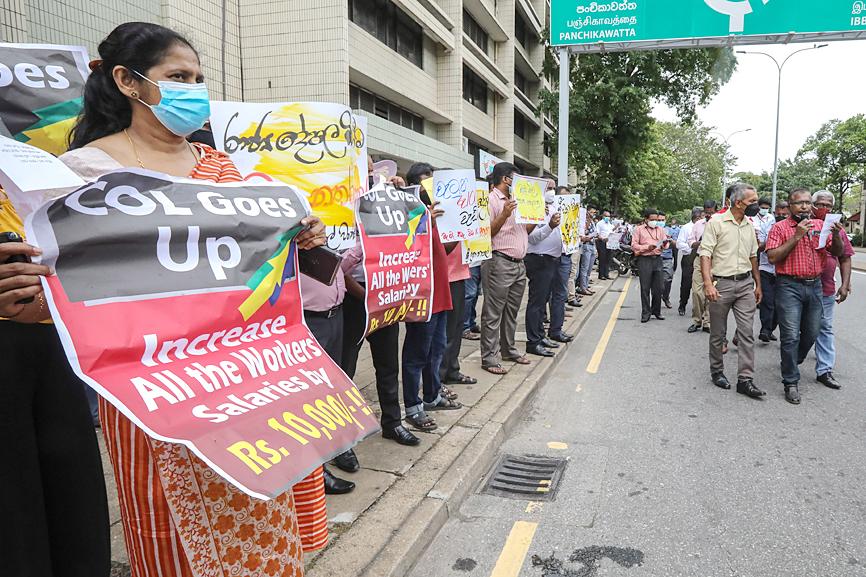The Sri Lankan government yesterday threatened to freeze the ba
The Sri Lankan government yesterday threatened to freeze the bank accounts of Sri Lankans working overseas who send money back to the country using informal money changers, as depleted foreign exchange reserves drive a thriving black market for US dollars.
The COVID-19 pandemic has wreaked havoc on the island’s economy, and the government has banned imports of food, vehicles and other items in an effort to shore up its stockpile of foreign currency.
These restrictions have led to severe shortages of food, cooking gas and cement, and Sri Lanka was forced to shut its only oil refinery last month, as it ran out of US dollars to import crude.

Photo: EPA-EFE
The official exchange rate of 202 rupees to the US dollar, offered by commercial banks that have run out of foreign currency, is well below the 240 rupees to 245 rupees offered by informal money changers now in the Sri Lankan central bank’s crosshairs.
Central Bank of Sri Lanka governor Ajith Nivard Cabraal said that migrant workers and others would face consequences if they sent their earnings home outside of official channels.
“Bank accounts of those who distribute and receive #money through #unlawful money transmission methods will be frozen with immediate effect,” Cabraal wrote on Twitter.
He added that the central bank “urges all #migrant Sri Lankans to use only #legal channels to #repatriate their earnings.”
The bank has also offered to pay a 10 rupee incentive to overseas workers who send money back through official channels, up from 2 rupees before.
Sri Lanka is struggling to service its foreign debt, and foreign exchange reserves had fallen to US$2.26 billion at the end of October, about one-third of the levels when a new administration took office two years ago.
Ratings agency Moody’s Investors Service in October downgraded Sri Lanka’s foreign debt rating, and the government last month unveiled a drastic austerity budget in an attempt to rein in its runaway deficit.
Central bank officials have said that the country is facing its worst foreign exchange crisis since the advent of a free economy and have demanded all exporters turn over their foreign exchange earnings to the government within six months.
Sri Lanka recorded its worst ever economic performance last year with a 3.6 percent contraction, fueled largely by the fallout from the pandemic on tourism.
Comments will be moderated. Keep comments relevant to the article. Remarks containing abusive and obscene language, personal attacks of any kind or promotion will be removed and the user banned. Final decision will be at the discretion of the Taipei Times.
www.taipeitimes.com
